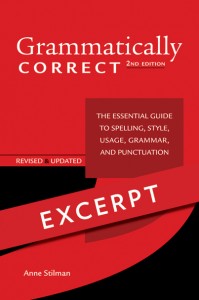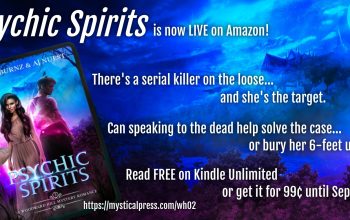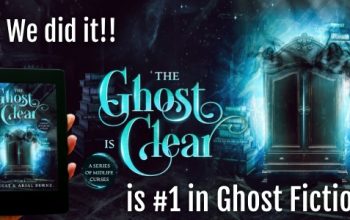 CAN One Increase Their Chances of Getting Published?
CAN One Increase Their Chances of Getting Published?
Absolutely!! I'm putting on my editor's hat today to share some tips on how to increase your chances of getting published. One of the first is to study your craft…and I can tell you there are MANY writers who don't do this. This alone can help you stand out above the rest and get you published.
I'm appalled at the crap that comes flooding through submissions. And I STILL–OMG STILL–get authors asking, “Do we have to send in a polished manuscript, even to an agent?” Seriously????? Why would you want to send anything less? If these authors think getting their manuscript cleaned up for submissions is time-consuming, then they are definitely not ready for the editing process. And then, after so many rejections, they become self-published. It breaks the heart!! Writing should be taken seriously as a career, which means LEARNING YOUR CRAFT! Never stop studying and always strive to improve.
Here's an excellent resource for some FREE grammar assistance: Writer's Digest – Grammatically Correct by Anne Stillman. This link is to a free download excerpt of the book and worth the view. Lots of great advice in this snippet.
Another way to improve your writing and your chances of getting published is seeking outside input. The mandatory part of being a writer is putting yourself out there, so don't be afraid to share your work with others. Critique partners, writers groups, other published writers, online writing forums, etc. Those resources will help you find necessary outside input you need to find trouble spots in your manuscript. You don't necessarily have to do what everyone is saying, thereby pulling your style in many different directions. You'll end up throwing in the towel. However, if most people are saying the same thing about your writing, you might want to seriously look into how to improve that element of your craft. Take classes online or at your local community college. Depending on the classes, they will not only teach you the basics of writing structure (grammar, etc.), but techniques to show vs. tell and when to use both, character development, plot development, etc. Here are some books I recommend to all my authors:
- The 90-Day Novel: Unlock the story within by Alan Watt – GREAT book to help you find character motivation as well as a theme to your book and create amazing transformation for your characters.
- Write Great Fiction: Revision and Self-Editing by James Scott Bell – This book will help you polish your manuscript and get it ready for submission. Though it's very helpful in this area, I still recommend getting feedback from peers before submitting.
And here are some tips on how to increase your chances of getting published:
READ What You WRITE
I'm an editor for erotica and erotic romance and I'm just dumbfounded to see queries touting they're erotic fiction. Yet when I get their manuscript into my hot little hands, they're nowhere NEAR erotic fiction. They not only glaze over the sex, but there are hardly any sex scenes. (I won't even go into the quality…see above.) If these authors READ erotic fiction, they would KNOW without a doubt that what they're submitting is NOT erotic fiction. OR they're denser than a pole if they DO read it and they're handing in this stuff.
This goes with ANY type of fiction you're writing. Heck, it even applies to non-fiction. I've had dozens of authors say, “You know, I have this really great idea for a [insert genre] novel! I'd like to run it by you!”
Then I say, “Interesting…do you READ [insert said genre]?”
I am very surprised at the high percentage of people who respond with, “Uh, well…no.” If you have an idea for a story, even a memoir or a non-fiction book, DO NOT SIT DOWN AND START WRITING IF YOU DO NOT READ THE SAME TYPE OF BOOK YOU WANT TO WRITE. Remember this quote:
“If you don't have time to read, you don't have the time (or the tools) to write. Simple as that.” –Stephen King in his book On Writing
Serious as a heart attack. Take heed! And I'm not talking about one or two books. Read at least a dozen of those buy ambien with no rx types of books you want to write…and keep on reading them. If you're just starting out, read the latest (within the last 5 years) and greatest (lots of great reviews AND is selling well) published books of your desired genre. This will at least let you know what is currently being published and what people are buying. But I also encourage you to read the classics in that genre as most of those will be the ones who paved the way and inspire current works. Read, read, read!
Submit to the Right Publisher
Do yourself a favor: Don't just send out a blanket of submissions. You must study the publishers to which you're submitting. Many people think the submission process is a numbers game. “If I send my manuscript to X-amount of publishers, I'll get X-amount of rejections and I'm that much closer to getting published!” WRONG! I used to be one of those authors in my younger days and I still hear this attitude among authors today at the conventions. It's not a numbers game at all! It's about the above information AND about approaching the right audience. Admittedly and sadly, there's a hair of opinion in this process. If the editor doesn't personally enjoy the story, they usually won't contract it, and that does boil down to their opinion. However, if an editor is doing their job right, they'll be a tad more objective. Also, many authors seem to take the attitude that this is the ONLY reason they got rejected and keep submitting without doing anything to improve their manuscript.
Don't just look through the publisher's guidelines and find your genre, thinking you have a winner. With the use of the Internet today, you have the added advantage of seeing what they've published and whether or not your material matches what they're publishing. The publisher's website should have a list of the books they've published. Jot down about 5-10 titles, then go to Amazon.com and look them up. Most books will have a “Look Inside!” feature. Read the first few pages you're permitted to see. Read the blurbs about the books. Fantasy, for example, encompasses a huge realm of possibilities. Does this publisher put out post-apocalyptic stories? High fantasy with elves, dwarves and wizards? Are they publishing YA, erotic, adult fiction, gritty sub-genres, horror, etc.? All this research is useful on many levels…
- The quality of what they publish
- If their books are actually selling (look at those Amazon rankings)
- Finding books that are similar to yours – then you can tout, “Readers who like [said title] would enjoy my book.”
And let me share one secret with you: We editors are DYING to find a good book to edit. We're on YOUR side! We want to find a manuscript that's well written with characters that sweep us off our feet and take us to worlds of conflict and satisfying resolutions. We are NOT looking for any excuse to reject your manuscript. We're begging for quality material to be published. THAT is how you will stand out as an author. WRITE a story that is not only gripping and we cannot put down, but one that will be easy for us to edit and polish for publication. An editor's job is NOT to fix your manuscript. Our job is to help you get it ready for publication, which does require some clean-up, but NOT the book doctoring 95% of the submissions coming across our desk need. And that's no joke…there are THAT many BAD manuscripts coming through. It's the main reason why the Big Six will only take submissions from an agent. They don't have the time to wade through the crap. That's what agents do.
There are a dozen other things you can do to increase your chances of getting published, like attending conferences, networking online, building an author platform, have a freelance editor go through a short story or small piece of your writing so you can get first-hand experience at being edited (SOOOOOO worth the money you spend)…and so much more. But that's for other posts. Until then…
That's my two pence…
Arial 😉



